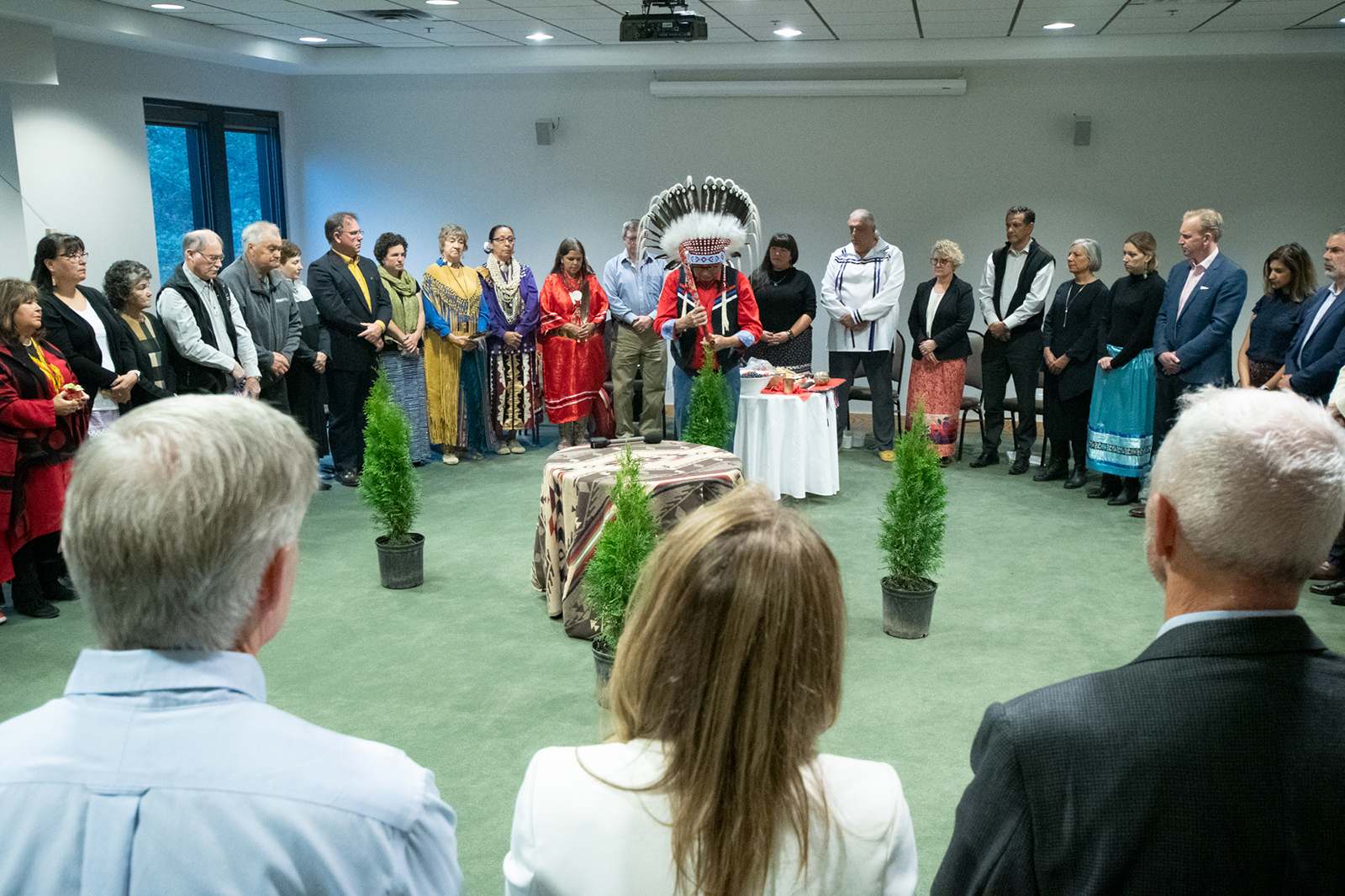This Indigenous Languages Day, the Nuclear Waste Management Organization celebrates the diversity of the Indigenous peoples of Mother Earth, the importance of Indigenous languages, and how the recognition of Indigenous rights is inextricably linked to protecting future generations.
Indigenous languages are diverse—there are over 70 Indigenous languages across Canada from 11 different language groups.
Languages are a fundamental part of culture, heritage, knowledge systems and self-determination. Today, there are many Indigenous peoples and nations re-establishing their laws, governance and environmental practices in their traditional languages.
As part of our Reconciliation commitment, the NWMO is building relationships with First Nation, Métis and municipal communities in relation to Canada’s plan for the safe, long-term management of used nuclear fuel.
One example is Grand Council Treaty #3’s Manito Aki Inakonigaawin, the Great Earth Law. This law governs relationships with the land and its inhabitants. Many of the ideas in this law are foundational in Anishinaabemowin and cannot be easily translated to other languages. The NWMO is committed to working with the Nations of Treaty #3 to understand Manito Aki Inakonigaawin and how we will abide by that law. To learn more about Manito Aki Inakonigaawin, click here.
Similarly, many Anishinaabek communities base their relationships with one another, the land, the water and the environment on the idea of Mino Bimaadiziwin—a philosophy of the good life based on how people speak, think and act. An important part of Mino Bimaadiziwin is connection to language and the earth.
The NWMO is also committed to working with Saugeen Ojibway Nation to build a relationship based on Mino Bimaadiziwin.
This is the second year of the UN International Decade of Indigenous Languages. As part of the NWMO’s commitment to Reconciliation, we are committed to respecting Indigenous languages and the Indigenous knowledge systems they carry. This commitment is foundational to how we work to build relationships with Indigenous peoples to protect the environment, water, wildlife and people while finding a long-term management solution for Canada’s used nuclear fuel.
Indigenous languages are diverse—there are over 70 Indigenous languages across Canada from 11 different language groups.
Languages are a fundamental part of culture, heritage, knowledge systems and self-determination. Today, there are many Indigenous peoples and nations re-establishing their laws, governance and environmental practices in their traditional languages.
As part of our Reconciliation commitment, the NWMO is building relationships with First Nation, Métis and municipal communities in relation to Canada’s plan for the safe, long-term management of used nuclear fuel.
One example is Grand Council Treaty #3’s Manito Aki Inakonigaawin, the Great Earth Law. This law governs relationships with the land and its inhabitants. Many of the ideas in this law are foundational in Anishinaabemowin and cannot be easily translated to other languages. The NWMO is committed to working with the Nations of Treaty #3 to understand Manito Aki Inakonigaawin and how we will abide by that law. To learn more about Manito Aki Inakonigaawin, click here.
Similarly, many Anishinaabek communities base their relationships with one another, the land, the water and the environment on the idea of Mino Bimaadiziwin—a philosophy of the good life based on how people speak, think and act. An important part of Mino Bimaadiziwin is connection to language and the earth.
The NWMO is also committed to working with Saugeen Ojibway Nation to build a relationship based on Mino Bimaadiziwin.
This is the second year of the UN International Decade of Indigenous Languages. As part of the NWMO’s commitment to Reconciliation, we are committed to respecting Indigenous languages and the Indigenous knowledge systems they carry. This commitment is foundational to how we work to build relationships with Indigenous peoples to protect the environment, water, wildlife and people while finding a long-term management solution for Canada’s used nuclear fuel.

